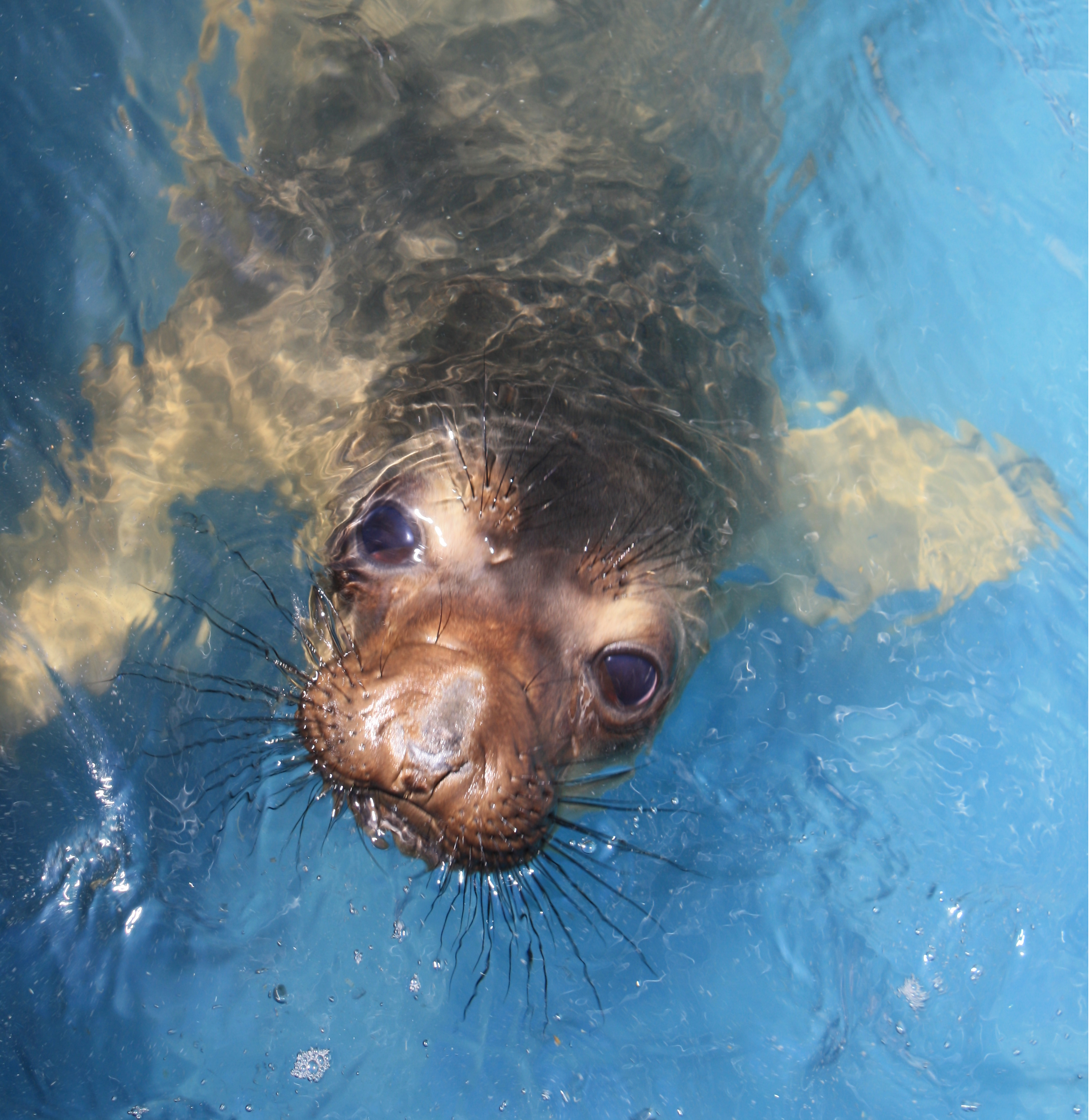Northern Elephant Seal Rescue and Rehabilitation during the Covid Crisis
By Heather Henderson, Marine Program Manager

One of our Elephant Seal patients
Photo by Heather Henderson
Springtime is Elephant Seal time along the California coastline. Few things are as predictable as the arrival of newly weaned Northern Elephant Seal pups hauling out each March on our Malibu beaches! While these young marine mammals are relatively large, they strand in a severely malnourished state, 30-50% of the healthy weight for their age (59 – 99 lbs).
Each February, anticipation of their arrival builds excitement for staff and volunteers. At CWC, the entire Marine Mammal Program is planned around rehabilitating Elephant Seal pups, from enclosure design to when new team members are recruited. Not even a global pandemic can stop the pups’ annual arrival, however, it certainly can have an impact.
The Covid-19 Safer at Home ordinance went into effect just as Elephant Seals started to arrive. In response, we decreased the number of people on-site each day to two, compared to ten. Operating at 20% personnel was daunting, but human safety always dictates our approach. We adjusted our rehabilitation procedures and feeding times a little bit, which doesn’t impact patient care but does make it easier for fewer people to care for them.
Thankfully, this has been possible because we have had fewer reports of distressed marine animals this year. Between homeowners and lifeguards, there are still eyes on the beach reporting stranded animals, so we feel confident we are not leaving pups to suffer and that it is actually a lighter year overall. In certain cases, empty beaches have also meant healthy animals have been afforded the luxury of resting and then moving on instead of needing rescue due to harassment by people.
During these past two months, our volunteers have been missed and we eagerly await their return! Thank you for continuing to support rehabilitation efforts at California Wildlife Center. Stay safe.
